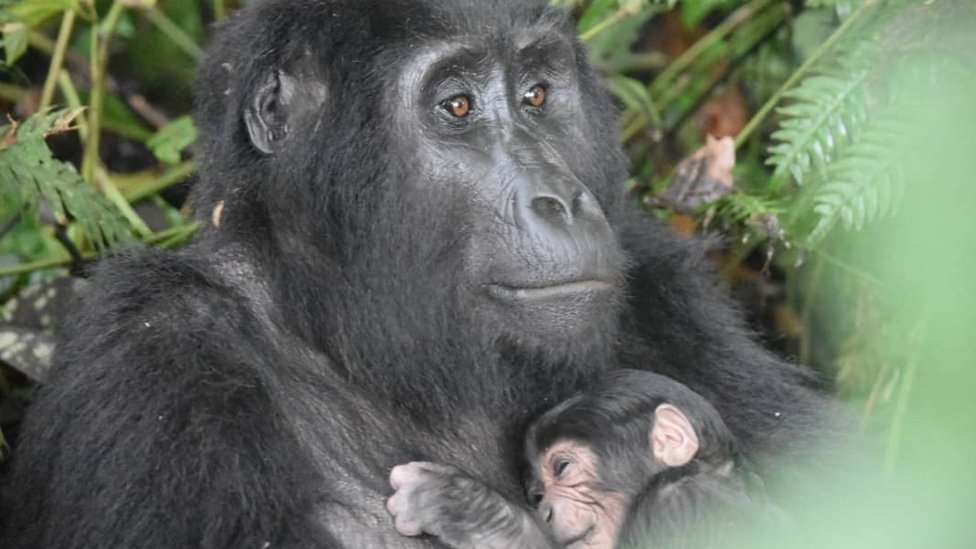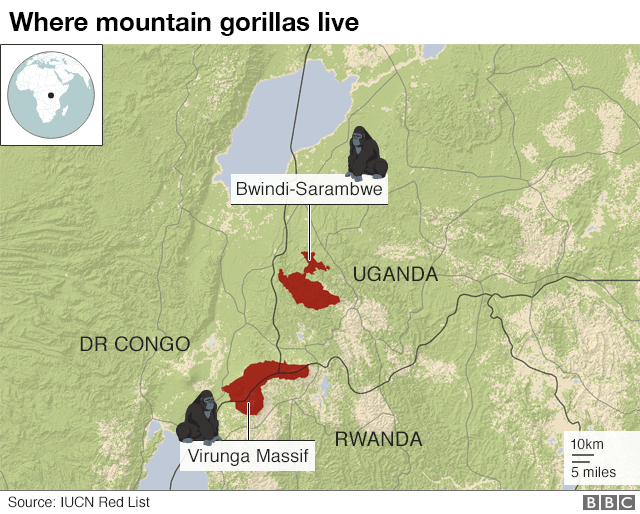
image copyrightUganda Wildlife Authority
Five baby gorillas have been born in six weeks in Bwindi National Park, leading the Ugandan Wildlife Service (UWS) to declare a baby boom.
Announcing the latest birth, the UWS said: “The Rushegura gorilla family welcomes another bouncing cute baby gorilla”.
Seven babies have been born since January compared to three for the whole of 2019, according to the UWS.
Mountain gorillas are endangered with just over 1,000 in existence.
The UWS told the BBC that this year was unprecedented for gorilla births but it is not clear why there has been this uptick.
The five recent births were to different families, not to the same family, as we initially reported.
BBC Africa correspondent Catherine Byaruhanga says the baby boom comes as the parks are testing out visits to primate locations, which were stopped due to coronavirus.

… how to tickle a gorilla:

In March, most of Uganda’s tourism sector was shut down and the industry is slowly opening up but primates are of particular concern as they share so much of our DNA.
Now, small groups of visitors are allowed into protected areas as new safety procedures, such as wearing face masks and social distancing, are tried out.
Poaching has also been a major worry for authorities especially during the lockdown.
In July, a man was sentenced to 11 years in prison over the killing of Rafiki, a silverback gorilla in Bwindi.
Around 400 gorillas live in Bwindi, in 10 family groups.

The mountain gorilla species is restricted to protected areas in the Democratic Republic of Congo, Rwanda and Uganda.
As well as in Bwindi Impenetrable National Park, they can also be found in a network of parks in the Virunga Massif range of mountains which straddle the borders of the three countries.
In 2018, the mountain gorilla was removed from the list of critically endangered species by the International Union for Conservation of Nature, after intensive conservation efforts, including anti-poaching patrols, paid off.
The IUCN now classifies the species as endangered.
Read MoreFeedzy


